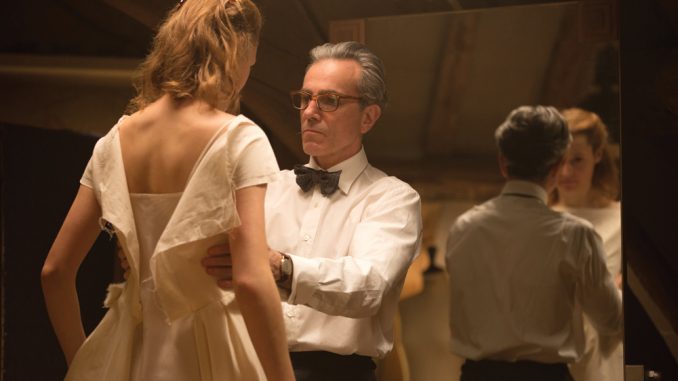
Tom Capone, Contributing Writer |
“Phantom Thread” is the second collaboration between director Paul Thomas Anderson and actor Daniel Day-Lewis after the 2007 film, “There Will Be Blood.” “Phantom Thread” is supposed to be the final film in Day-Lewis’s impressive acting career.
Day-Lewis gives a fantastic performance in “Phantom Thread,” one that is worthy of going out on. At the same time, it’s not the best performance he has ever given. This title belongs to “There Will Be Blood,” a performance that will likely never be topped, even if Day-Lewis one day returns to acting.
“Phantom Thread’ is a well-made film, but the ultimate decision of liking the film or not comes down to how the ending works for you. There are many seeds planted throughout the film that hint at the ending. If you pick up on these hints, the ending will most likely work for you.
“Phantom Thread” is essentially a film about control and obsession, both in art and in life. It touches on what the need for control and obsession of something can do to someone, and what that person would be able to do or to have done to them.
It is impossible to talk about “Phantom Thread” and not mention the performance of Vicky Krieps, who delivers a performance that comes very close to matching that of Day-Lewis. Krieps manages to steal moments from Day-Lewis—a feat that has not been accomplished in recent memory.
“Phantom Thread” is also a return to form for director Paul Thomas Anderson, who has had a few missteps in the last few years. However, Anderson does an excellent job guiding “Phantom Thread” through the obsession of Day-Lewis’s character, Reynolds Woodcock. He manages to not make Woodcock seem like a villain throughout the whole film by making the audience understand where the character is coming from, how he views himself as an artist and not simply a fashion designer.
One cannot help but to see a parallel between Day-Lewis’s character and Day-Lewis himself. It is no secret that Day-Lewis lives as his characters weeks before and all throughout filming. He obsesses over his performance, much like Reynolds Woodcock obsesses over his dresses.
Woodcock’s infatuation with his dresses reaches the point that he is not concerned with how a dress looks as much as who wears the dress. One of the best scenes in the film is when he must go to a wedding and watch a woman wear one of his dresses as she gets drunk and makes a fool of herself.
The scene reveals much about his character, seeing what Woodcock does to a woman he feels does not deserve to wear one of his dresses. This scene would not work if it were not for the performances of Day-Lewis and Krieps, both of whom deliver excellent performances in this scene alone.
“Phantom Thread” is a film that will grow on you the more you reflect upon it. The more you analyze the various scenes and how they all connect to each other, the more you will like the film. As of this moment, “Phantom Thread” is a nine out of ten.
Leave a Reply